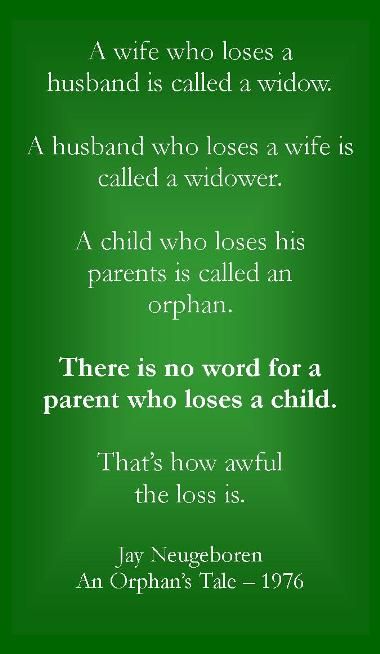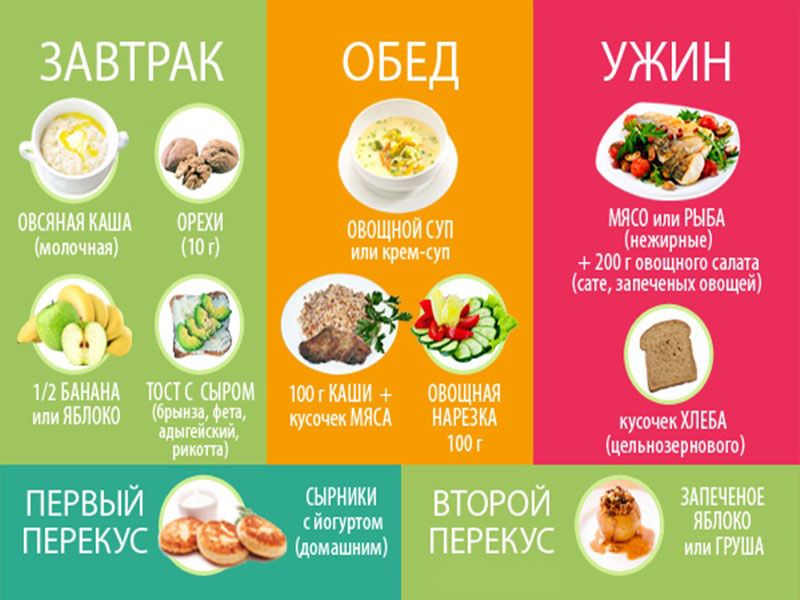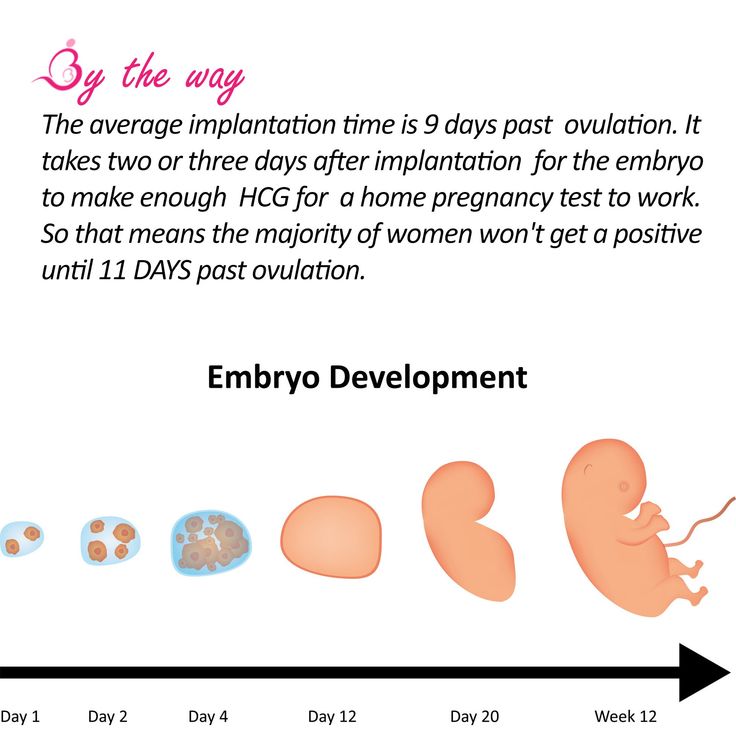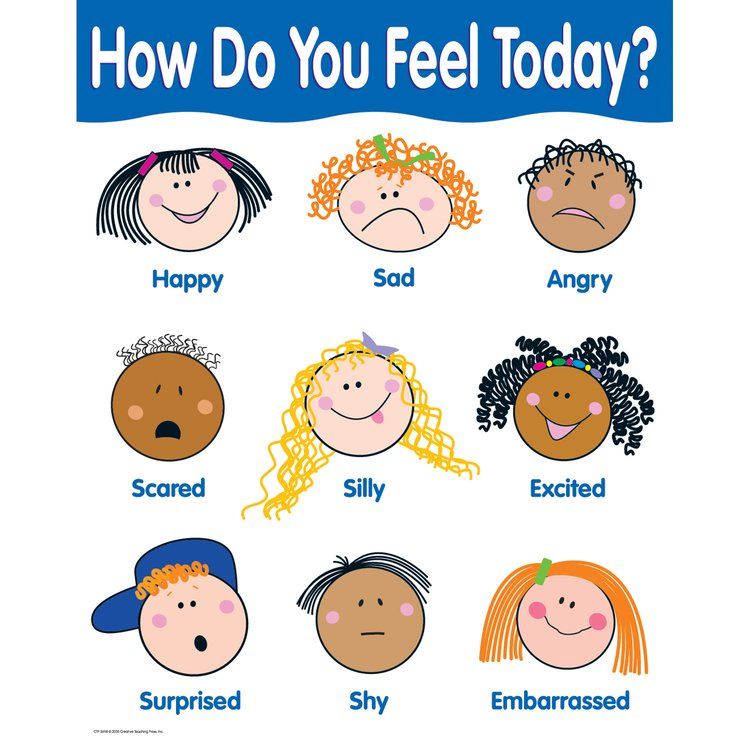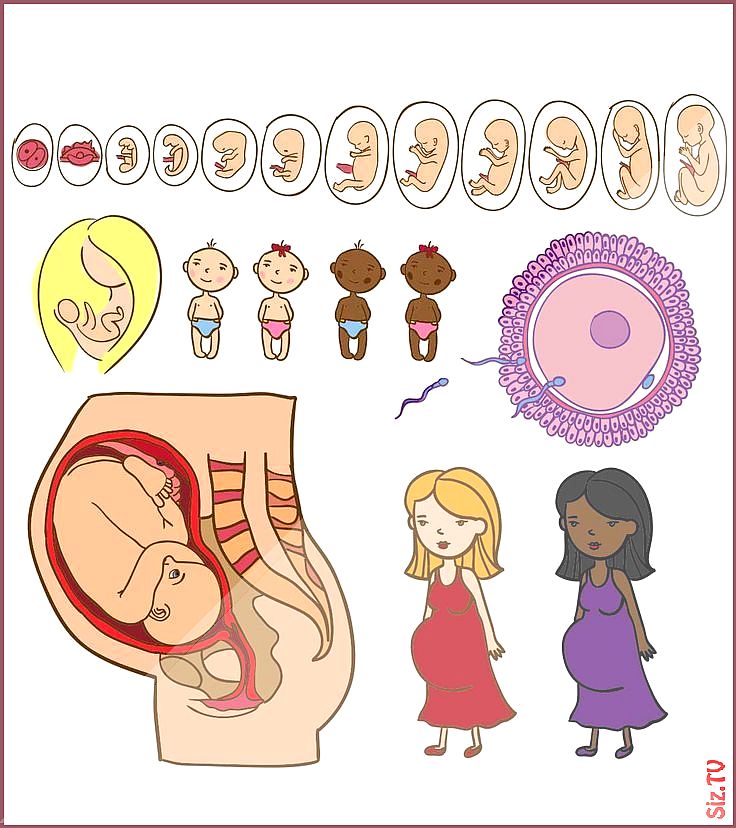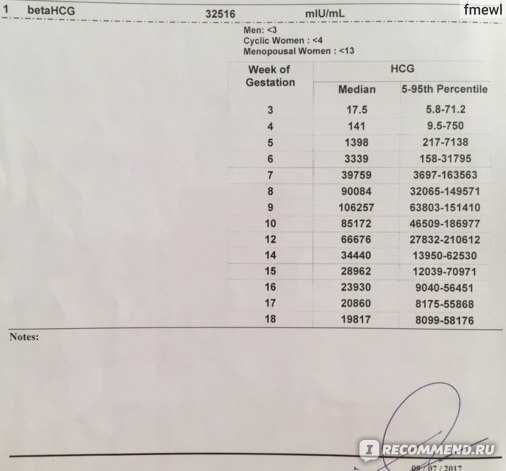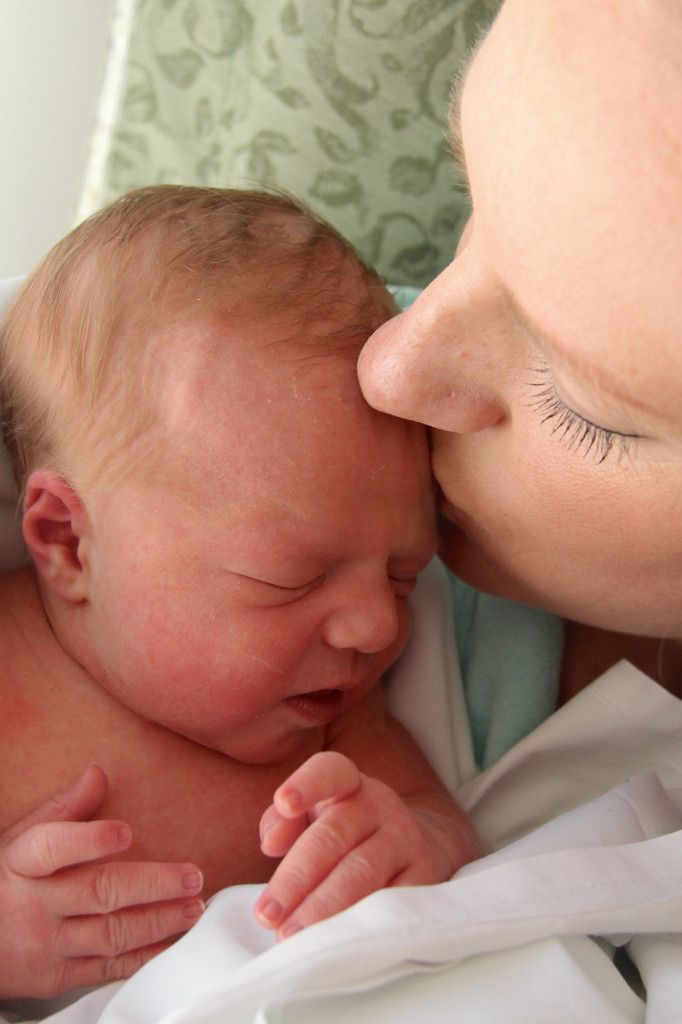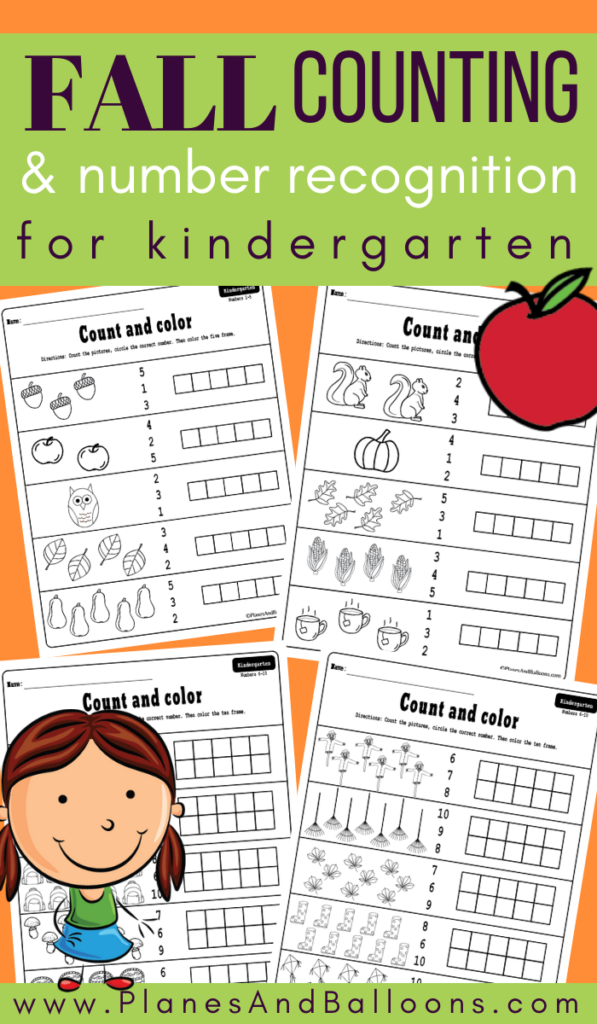How to grieve the loss of a child
Grieving the Loss of a Child
Approved by the Cancer.Net Editorial Board, 09/2019
No parent is prepared for a child's death. Parents are simply not supposed to outlive their children. It is important to remember that how long your child lived does not determine the size of your loss. The loss of a child is profound at every age.
-
Parents of young children are intimately involved in their daily lives. Death changes every aspect of family life, often leaving an enormous emptiness.
-
The death of an older child or adolescent is difficult because children at this age are beginning to reach their potential and become independent individuals.
-
When an adult child dies, you lose not only a child but often a close friend, a link to grandchildren, and an irreplaceable source of emotional and practical support.
You may find that you also grieve for the hopes and dreams you had for your child, the potential that will never be realized, and the experiences you will never share. If you lost your only child, you may also feel that you have lost your identity as a parent and perhaps the possibility of grandchildren. The pain of these losses will always be a part of you. Yet with time, most parents find a way forward and begin to experience happiness and meaning in life once again.
Common grief reactions
Grief reactions after the death of a child are similar to those after other losses. But, they are often more intense and last longer. You may experience the following grief reactions:
-
Intense shock, confusion, disbelief, and denial, even if your child's death was expected
-
Overwhelming sadness and despair, such that facing daily tasks or even getting out of bed can seem impossible
-
Extreme guilt or a feeling that you have failed as your child's protector and could have done something differently
-
Intense anger and feelings of bitterness and unfairness at a life left unfulfilled
-
Fear or dread of being alone and overprotecting your surviving children
-
Resentment toward parents with healthy children
-
Feeling that life has no meaning and wishing to be released from the pain or to join your child
-
Questioning or losing faith or spiritual beliefs
-
Dreaming about your child or feeling your child's presence nearby
-
Intense loneliness and isolation, even when around other people, and feeling that no one can truly understand how you feel
Although grief is always profound when a child dies, some parents have an especially difficult time.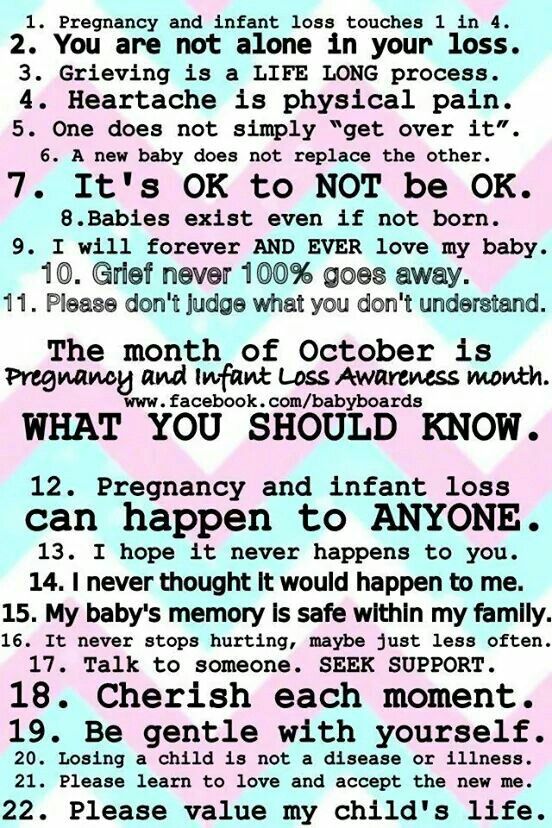 Even as time passes, their grief remains intense, and they feel it is impossible to return to normal life. Some parents may even think about hurting themselves to escape from the pain. If you are having these feelings, talk with a professional such as a doctor or counselor right away. You can find help to move past this intense grief.
Even as time passes, their grief remains intense, and they feel it is impossible to return to normal life. Some parents may even think about hurting themselves to escape from the pain. If you are having these feelings, talk with a professional such as a doctor or counselor right away. You can find help to move past this intense grief.
Timing of your grief reactions
Some people expect that grief should be resolved over a specific time, such as a year. But this is not true. The initial severe and intense grief you feel will not be continuous. Periods of intense grief often come and go over 18 months or longer. Over time, your grief may come in waves that are gradually less intense and less frequent. But you will likely always have some feelings of sadness and loss.
Even years after your child's death, important events and milestones in the lives of other children can trigger grief. Significant days such as graduations, weddings, or the first day of a new school year are common triggers. At these times, you may find yourself thinking about how old your child would be or what he or she would look like or be doing if still alive.
At these times, you may find yourself thinking about how old your child would be or what he or she would look like or be doing if still alive.
Differences in how parents grieve
Parents may grieve in different ways depending on their gender and their daily role in a child’s life. One parent may find that talking helps, while the other may need quiet time to grieve alone. Cultural expectations and role differences also affect how parents grieve. Men are often expected to control their emotions, be strong, and take charge of the family. Women may be expected to cry openly and want to talk about their grief.
If you are a working parent, you may become more involved in your job to escape the sadness and daily reminders at home. A stay-at-home parent may be surrounded by constant reminders and may feel a lack of purpose now that his or her job as caregiver has abruptly ended. This is especially true for a parent who spent months or even years caring for a child with cancer.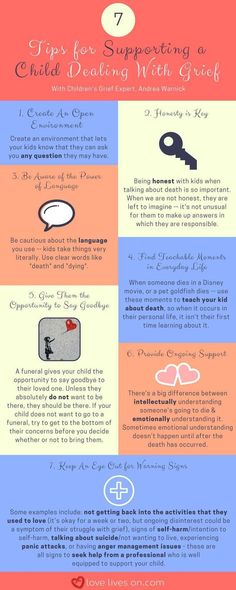
Differences in grieving can cause relationship difficulties at a time when parents need each other's support the most. One parent may believe that the other is not grieving properly or that a lack of open grief means he or she loved the child less. Talk openly about your grief with your partner. Work to understand and accept each other's coping styles.
Helping siblings who are grieving
Parents are the focus of attention when a child dies, and the grief of siblings is sometimes overlooked. The death of a sibling is a tremendous loss for a child. They lose a family member, a confidant, and a life-long friend.
When your child developed cancer, you were likely completely focused on the needs of your sick child. You now may be overwhelmed with your own grief. Your surviving children may misinterpret your grief as a message that they are not as valued as much as the sibling who died.
You can help your children during this time of grief in several ways:
-
Make grief a shared family experience.
 Include children in discussions about memorial plans.
Include children in discussions about memorial plans. -
Spend as much time as possible with your children, talking about their sibling or playing together.
-
Make sure children understand that they are not responsible for a sibling’s death, and help them let go of regrets and guilt.
-
Never compare siblings to your child who died. Make sure your child knows that you don't expect them to “fill in” for him or her.
-
Set reasonable limits on their behavior. But try not to be either overprotective or overly permissive. It is normal to feel protective of surviving children.
-
Ask a close family member or friend to spend extra time with siblings if your own grief prevents you from giving them the attention they need.
Learn more about how to help a child or teenager who is grieving and how to cope with losing a sibling to cancer.
Helping yourself grieve
As much as it hurts, it is natural and normal to grieve.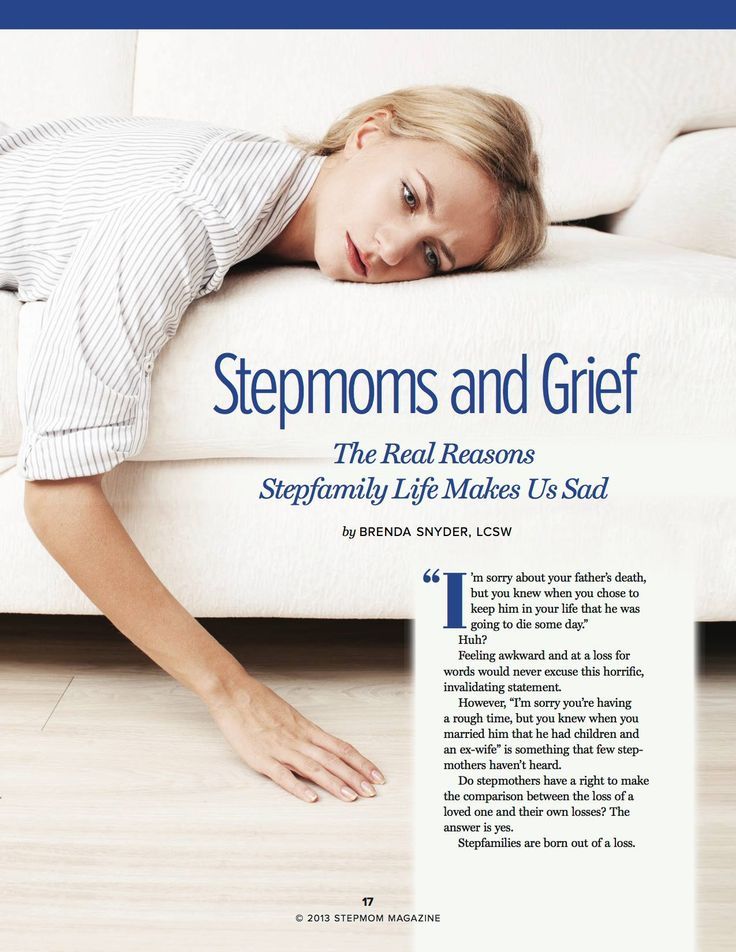 You may find the following suggestions helpful while grieving:
You may find the following suggestions helpful while grieving:
-
Talk about your child often and use his or her name.
-
Ask family and friends for help with housework, errands, and caring for other children. This will give you important time to think, remember, and grieve.
-
Take time deciding what to do with your child's belongings. Don’t rush to pack up your child's room or to give away toys and clothes.
-
Prepare ahead of time for how to respond to difficult questions like, "How many children do you have?" or comments like, "At least you have other children." Remember that people aren't trying to hurt you; they just don't know what to say.
-
Prepare for how you want to spend significant days, such as your child's birthday or the anniversary of your child's death. You may want to spend the day looking at photos and sharing memories or start a family tradition, such as planting flowers.
-
Because of the intensity and isolation of parental grief, parents may especially benefit from a support group where they can share their experiences with other parents who understand their grief and can offer hope.

Learn more about coping strategies for when you are grieving.
Finding meaning in life
You should expect that you will never really “get over” the death of your child. But you will learn to live with the loss, making it a part of who you are. Your child’s death may make you rethink your priorities and the meaning of life. It may seem impossible, but you can find happiness and purpose in life again.
For some parents, an important step may be creating a legacy for your child. You may choose to honor your child by volunteering at a local hospital or a cancer support organization. Or you may work to support interests your child once had, start a memorial fund, or plant trees in your child's memory. It is important to remember that it is never disloyal to your child to reengage in life and to enjoy new experiences.
Each of your children changes your life. They show you new ways to love, new things to find joy in, and new ways to look at the world. A part of each child's legacy is that the changes he or she brings to your family continue after death.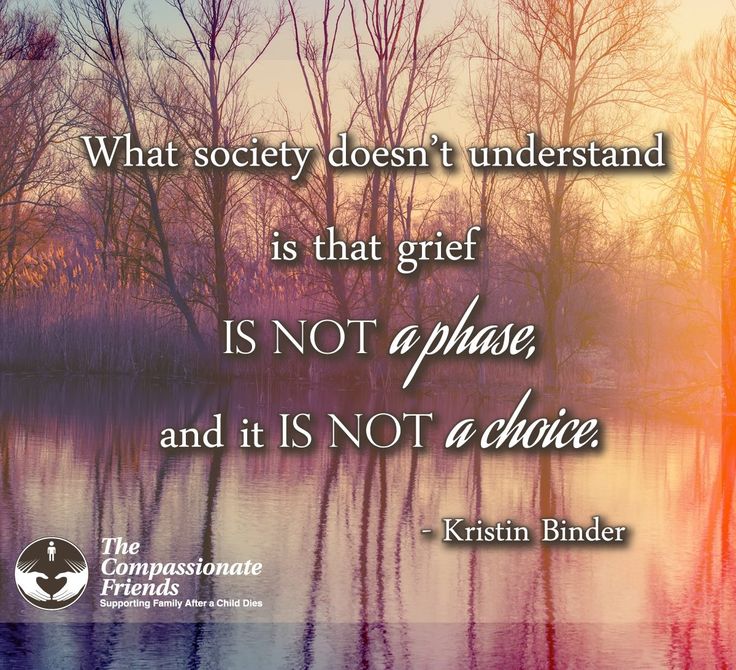 The memories of joyful moments you spent with your child and the love you shared will live on and always be part of you.
The memories of joyful moments you spent with your child and the love you shared will live on and always be part of you.
Related Resources
Understanding Grief and Loss
Support Groups
Making a Difference
Grieving the Loss of A Child
Everyone grieves in different ways, regardless of the type of loss experienced. When grieving the loss of a child, the grief process rarely follows a prescribed pattern. In fact, charts and graphs depicting stages of grief can never definitively predict or explain such a complex, highly personalized human experience.
When families with strong, healthy relationships lose a child, grief processes may be individualized, yet their relationships may survive intact (and perhaps even become stronger) as the family unit experiences the loss together. When families with weak relational ties experience the loss of a child, family relationships may become fractured.
Marital Stress
After losing a child, parents may find themselves experiencing shock, denial, anger, depression, hopelessness, guilt, isolation, disorganized thoughts, feelings of acceptance, and/or a host of other possible thoughts and feelings.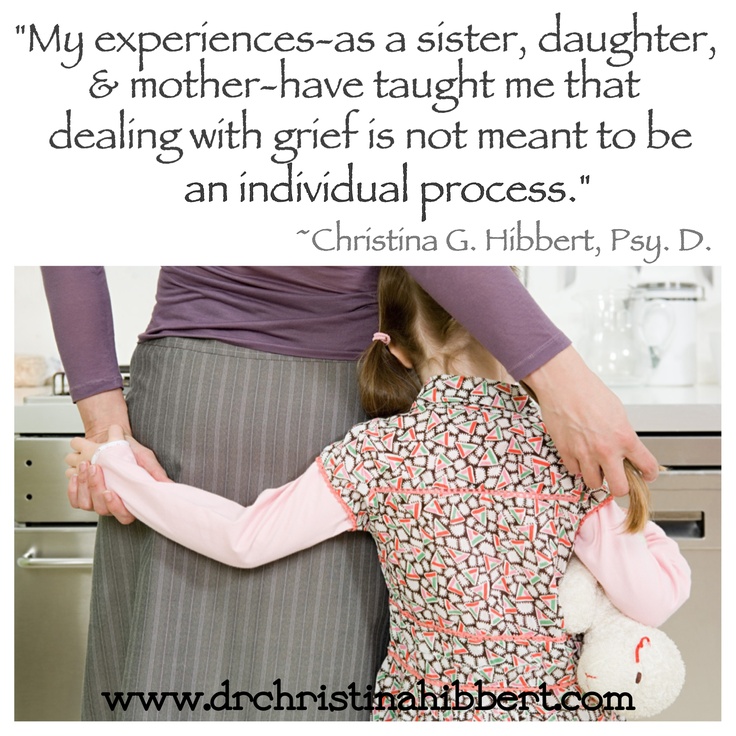 Mothers and fathers may cling to each other more closely, give each other space to grieve independently, distance themselves from each other temporarily, blame each other, show disdain for the other’s grieving style, etc.
Mothers and fathers may cling to each other more closely, give each other space to grieve independently, distance themselves from each other temporarily, blame each other, show disdain for the other’s grieving style, etc.
Because parents sometimes temporarily choose to relate to each other in vastly different ways after the loss of a child, conflicts may arise. When the lack of understanding about each person’s ways of expressing grief causes marital problems, this may signal the need to contact someone outside the family/friend system who can help. Professional family therapist with training in marital therapy are prepared to do just that.
When Therapy Might Help
Grief is a normal process of life. When people grieve, they may naturally decide to suspend daily activities for a period of time to express grief privately. As with the overall grief process, the needed period of privacy varies greatly from individual to individual.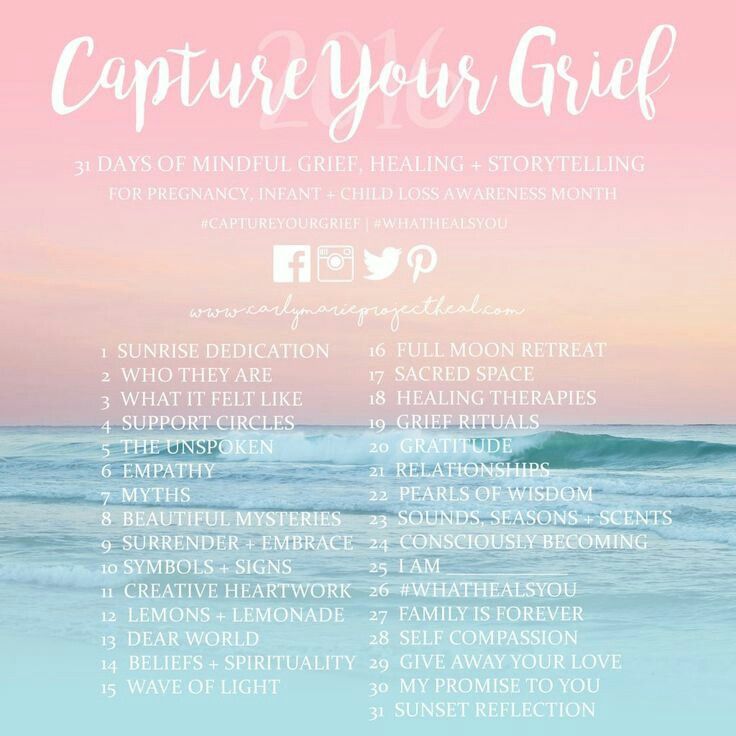
Because many ways of expressing grief are, in fact, personalized responses to great loss, when should a therapist be consulted? In general, consider contacting a marriage and family therapist if a grieving person:
- discusses harming themselves or another person
- isolates themselves (emotionally or physically) from dependent children
- refuses to eat, bathe, get out of bed, go to work, etc.
- refuses to believe that the loss occurred
- begins to engage in dangerous or unusual rituals
- erupts (uncharacteristically) in fits of rage
- suddenly threatens divorce
- insists repeatedly that no one is listening or willing to understand his/her feelings
- refuses to talk about anything else
Types of Therapy
A professional marital and family therapist may choose to utilize any of the following formats for therapy:
Individual Therapy – the therapist meets one-on-one with a client to assist the client in achieving the client’s personal goals
Family Therapy – the therapist meets with multiple members of the family unit to help family members find healthy ways to address the loss of their loved one and nurture strong family relationships
Group Therapy – the therapist meets with a group of individuals from different families who have experienced the loss of a child so that group members might learn from and, possibly, relate to each other in a professional setting
Additional Helpful Strategies
Keep a journal.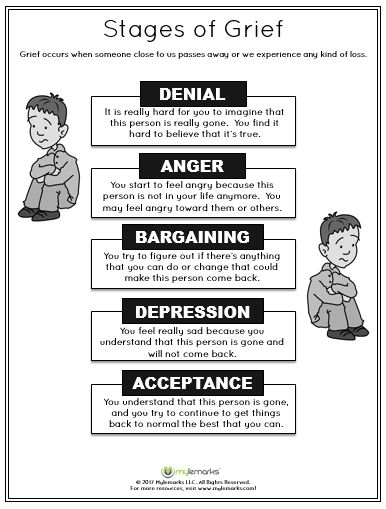 Sometimes it is useful to write downs thoughts and feelings that may be difficult to express verbally.
Sometimes it is useful to write downs thoughts and feelings that may be difficult to express verbally.
Find a friend who allows you to talk about your loss. Some friends may believe that talking about the loss is unhealthy. However, if you feel an occasional need to talk about your loss, look for a friend who will listen kindly and without judging.
Establish a new family ritual in which the lost child is honored in some way. For example, some families declare the birthday of the child “Family Day”. Every year, the parents take off work, check the children out of school, and plan an enjoyable family activity. Over the years, a ritual of this kind often helps family members heal as they openly talk about and remember the loss.
Join a support group. Whether located online or at a local church, groups of people with similar life experiences can offer encouragement to those who desire ongoing contact with others of like mind. (Note: Not all groups are helpful. Please use discretion in choosing to make yourself vulnerable to a group of strangers.)
Please use discretion in choosing to make yourself vulnerable to a group of strangers.)
Resources
Bereaved Parents of the U.S.A.: A self-help group that offers support, understanding, compassion and hope to bereaved parents, grandparents and siblings.
Candlelighters Childhood Cancer Foundation: Founded by parents of children with cancer, this group offers support to parents who have a child diagnosed with cancer and those whose child has died of cancer.
Compassionate Friends: An organization for bereaved parents, assisting families following the death of a child.
First Candle/SIDS Alliance: Support for families who have experienced miscarriage, stillbirth or sudden death of an infant.
Mothers Against Drunk Driving (MADD)
National Center for Missing and Exploited Children
The National Hospice and Palliative Care Organization: An organization representing palliative care and hospice programs and professionals in the U. S., committed to improving end-of-life care and increasing access to hospice care.
S., committed to improving end-of-life care and increasing access to hospice care.
National Organization of Parents of Murdered Children
Birth Injury Guide
Find a therapist in your area using AAMFT's Therapist Locator
Coping with the loss of a child - together
There is nothing more devastating in the world than the death of a child. It is difficult for families to imagine how to cope with such a loss. While parents never stop thinking about and missing their child, grief changes over time. According to parents, the acute and deep feelings of grief become less pronounced and more manageable over time. However, each person experiences grief differently. Grief does not follow a set schedule or pattern. Today you can feel progress, and tomorrow the simplest tasks seem impossible. Sometimes family members are surprised or even guilty to find that they have regained the ability to laugh at something. These feelings and reactions are natural. nine0003
Watch this video
Grief
Grief is a natural reaction to the loss of a loved one.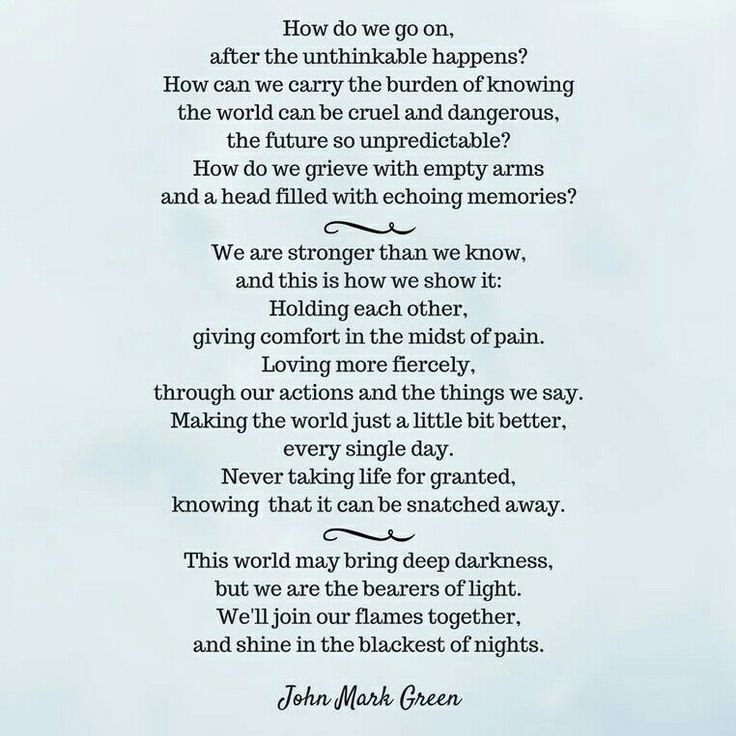 This feeling is individual. Everyone experiences grief in their own way, with different strengths and for different times. There is no standard set of emotions that you should feel after losing a child. Common feelings and reactions include:
This feeling is individual. Everyone experiences grief in their own way, with different strengths and for different times. There is no standard set of emotions that you should feel after losing a child. Common feelings and reactions include:
- shock
- sadness
- fear
- anger
- guilt
- sadness
- feeling of loneliness
- anxiety and constant agitation
- unwillingness to contact others
- constant thoughts and memories of the child
- dreams of spending a little more time with the child and longing for missed moments
- trouble falling asleep and insomnia
- excessive sleepiness
- changes in appetite
- loss of interest in entertainment
- trouble concentrating
Everyone can experience grief, but everyone experiences it in their own way. Even in the same family, spouses can have completely different reactions. Children and teens also experience grief in their own way, with different emotions and behaviors ranging from tears and sadness to disobedience and guilt.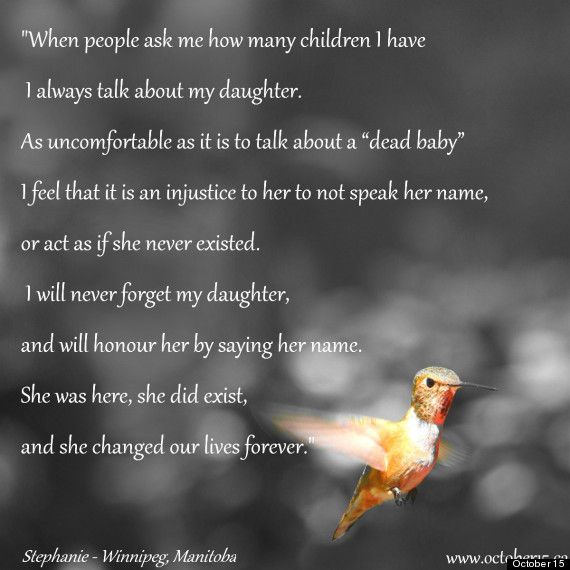 All these feelings are normal.
All these feelings are normal.
Watch this video
When to seek help
Counseling professionals—psychologists, counselors, and social workers—can be a source of support during bereavement. If a person asks for help, this does not mean that he somehow experiences his grief incorrectly. For some families, a mental health professional simply provides additional support. Parents and siblings of a departed child are often afraid that their friends and relatives will get tired of hearing about their grief. With a consultant, you can calmly share your experiences. A mental health professional creates a safe environment in which to talk about feelings and helps parents and siblings cope with grief. nine0051
In some cases, family members may present with symptoms of mental disorders such as anxiety, depression or post-traumatic stress disorder (PTSD). Specific thoughts and feelings to discuss with a mental health professional:
- thoughts about reuniting with the child
- thoughts of hurting yourself or someone else
- sense of worthlessness
- slow movement nine0011 auditory and visual hallucinations
- severe anxiety or anxiety
- sleep problems, nightmares
- difficulty doing daily activities
- refusal to believe in the death of a child
- avoiding baby reminders
- indignation
- loss of meaning and purpose in life after the death of a child
- sense of detachment
- sudden frightening memories that make you feel like you are reliving them
If you have thoughts of harming yourself or others, seek help immediately.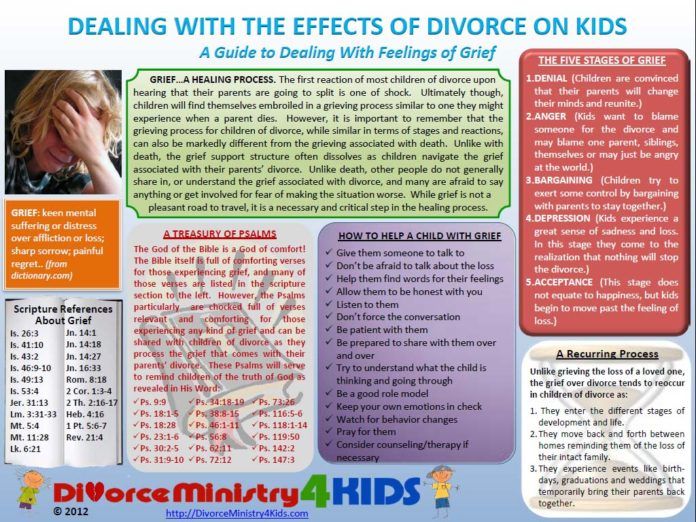
- Call the emergency number (112 in Russia, 911 in the US) and report such thoughts.
- Call the number of the Unified Helpline 8-800-2000-122 or the Emergencies Ministry's emergency psychological help line 8(495)989-50-50.
- Go to the nearest emergency room.
Grief is a natural reaction to the loss of a loved one. This feeling is individual. Everyone experiences grief in their own way, with different strengths and for different times. nine0003
-
Modified June 2018
I lost a child: personal stories and advice from a psychologist
“The loss of a child is one of the biggest losses in a person's life, since children are psychologically ready for the loss of their parents, since they are older than them. But parents are most often not ready for the loss of their children, because they are much younger, and they still have, as they say, to live and live. This “unexpected” loss is considered an aggravating story,” says psychologist Anastasia Steblyanko.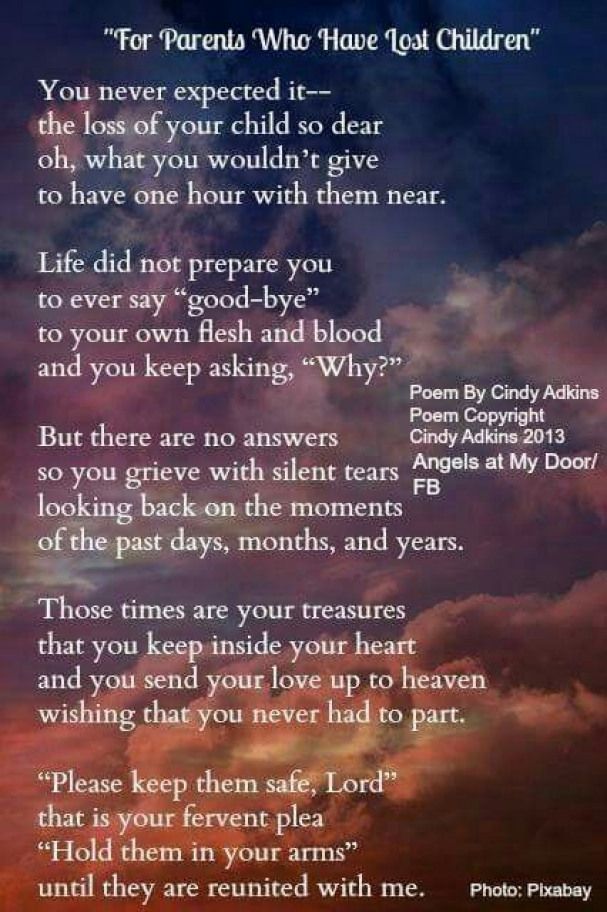 nine0003
nine0003
Last year, the infant mortality rate in Kazakhstan was 7.79 per 1,000 births. That is, in 11 months of 2020, three thousand babies under the age of one year died. The under-five mortality rate in 2019 was 10.69 per 1,000 births. In the same year, Kazakhstan took second place in the rating of the EAEU countries in terms of the mortality rate of children under five years old - about four thousand deaths were registered in the country. At the same time, about half of the cases, namely 51.2%, account for mortality due to problems in the perinatal period. nine0003
Galia Bekkuzhieva, 34 years old
I gave birth at an early stage - the baby was seven months old. The pregnancy was difficult, because literally from the first days I had a terrible toxicosis. I didn’t eat or drink anything, I saved myself only with mineral water with lemon and ice cream, sometimes I ate kiwi and a green apple. It was my entire diet. I went to the appointed gynecologist in the clinic. To all my questions that I asked about health reasons, toxicosis, severe weight loss, she told me: “I don’t know, I wasn’t pregnant.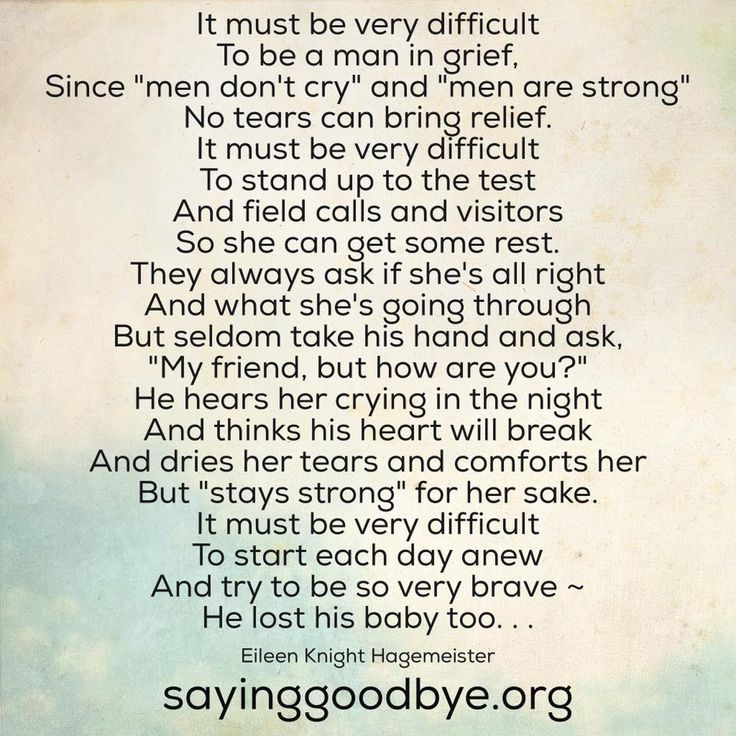 ” My term fell on July-August, and in May I was prescribed outpatient treatment with a number of injections. At this point, my kidneys failed. nine0003
” My term fell on July-August, and in May I was prescribed outpatient treatment with a number of injections. At this point, my kidneys failed. nine0003
After that, I developed extensive swelling of my legs, and at the beginning of June I was urgently admitted to the hospital. I was there for two weeks in intensive care. Doctors hoped to lower the pressure, but, unfortunately, it did not work. Therefore, I gave birth two months earlier with preeclampsia, and my kidneys partially failed. My child lived in intensive care for 21 days and died from elevated bilirubin - in other words, jaundice. The doctors told me that I lost the child because of the peculiarities of my health, which does not allow me to bear the child. nine0003
My husband and I wanted to sue, but because we were young, we did not do it for ethical reasons. They just asked us not to sue, and we obeyed. After the loss of a child, I did not turn to a psychologist: my husband and I left to work. We worked in difficult conditions - on a rotational basis, without days off, and only this saved us from depression.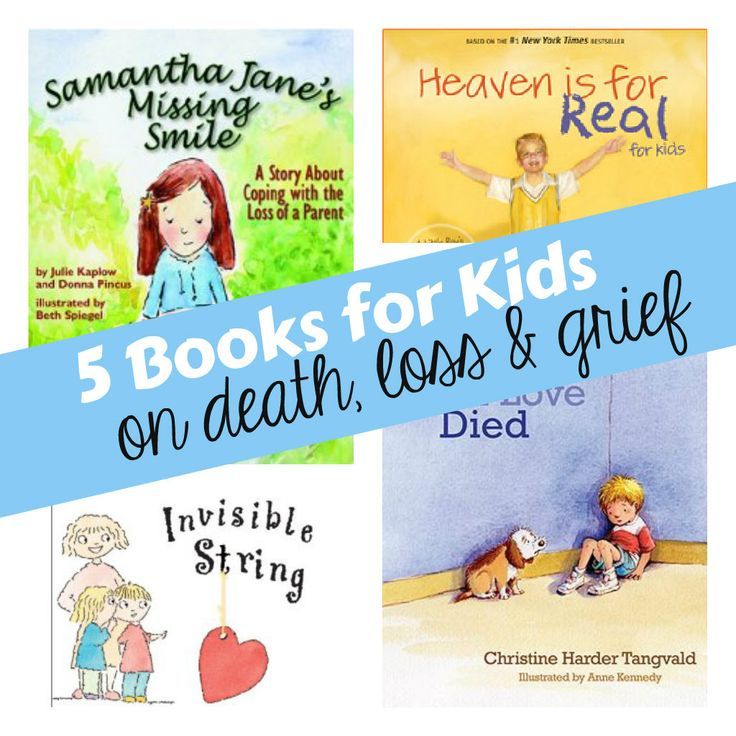
After some time I was asked for help for one family, and I began to help people and children in need of surgery and rehabilitation. Over the past 11 years, I could not get pregnant, and now I find myself thinking that it was so necessary for me to understand the pain of mothers myself, carry it through me and thereby begin to help people. nine0003
I would not wish to bury children to anyone, even my enemy. It is very difficult mentally, physically, it is difficult to get out of this state.
I advise people not to plunge headlong into the pool, to concentrate their attention on other children, if they are, or at work. Now people are more likely to turn to psychologists, but 11 years ago this was not the case. If you can turn to a psychologist - do it. But on my own I can say that the biggest support is your friends. nine0003
Indeed, Galiya's words echo what Anastasia says: “The first thing to do is not to experience grief alone. Be sure to find people who support the environment, which will be nearby. Here, not only psychological factors play a huge role, but also physiological ones, to the point that people experiencing grief refuse to eat, stop feeling their need for water and food. Therefore, it is important that close people support verbally, as well as provide for the vital needs of a person who has lost a child. nine0003
Be sure to find people who support the environment, which will be nearby. Here, not only psychological factors play a huge role, but also physiological ones, to the point that people experiencing grief refuse to eat, stop feeling their need for water and food. Therefore, it is important that close people support verbally, as well as provide for the vital needs of a person who has lost a child. nine0003
Unfortunately, in Kazakhstan it is not uncommon to lose a child at an early stage. So, over the ten months of 2019, more than 300 thousand pregnant women were registered, of which more than 43 thousand were unable to bear the child to the end. In 2018, more than 51 thousand miscarriages were registered in Kazakhstan.
N, 36 years old
Five years ago, I found myself in a funnel of very difficult events for me. That year, everything somehow came crashing down at once, and the most woeful thing turned out to be at the epicenter - I had a miscarriage. I lost a child, very tiny, not even formed yet.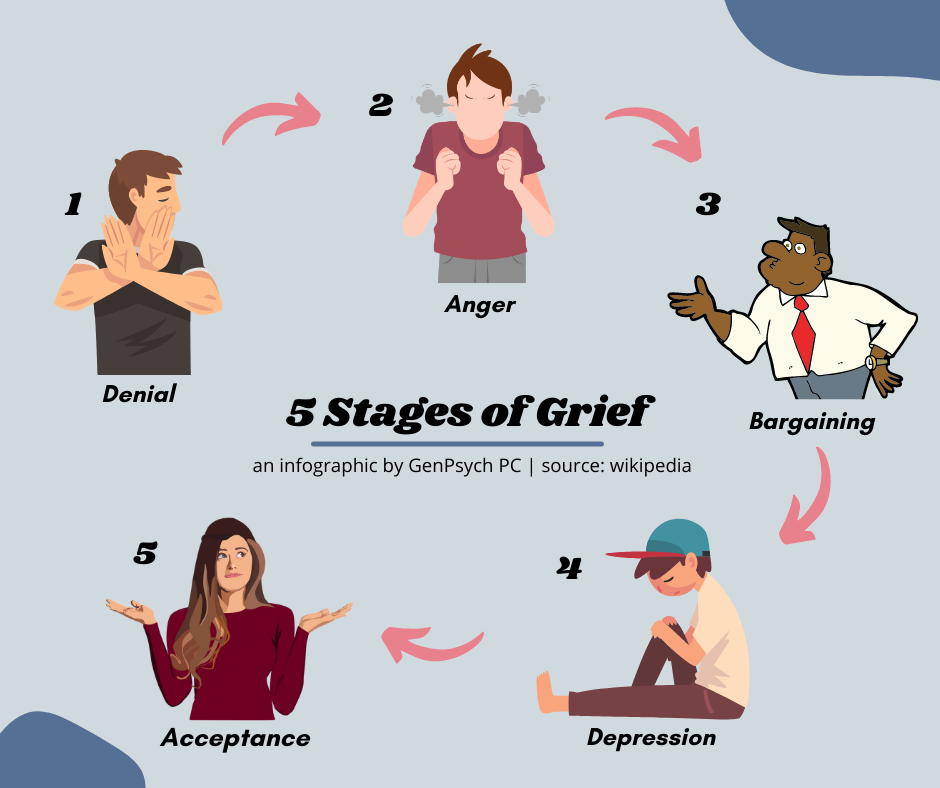 There were still no arms, no legs, no sweet face - nothing, but I still loved him very much and waited. nine0003
There were still no arms, no legs, no sweet face - nothing, but I still loved him very much and waited. nine0003
Now, thinking back to that time, I understand that everything then turned out against this small life. After the operation, my husband is on almost two months of bed rest, he is in his thoughts and feelings, and I, tired, twitchy, with a one-year-old baby in my arms.
At first I did not even understand anything and continued to live in my usual mode, carrying heavy bags from the store or a child with a sled at the ready for a walk. And then came the pain, and with it the terrible truth.
How to escape from this pain? But no way. Even after years it will not become smaller, it will just be a little duller. You just need to accept it and live with it, as old veterans live their whole lives with German bullets in their bodies. In such a situation, the support of relatives and friends is especially important for us. Never leave women alone with this pain, even the strongest, even the most successful. This is a terrible loss, pain, a gaping wound, which, alas, does not heal, because we are talking about the most dear to us, the most desirable. nine0003
What is the hardest thing for a woman at this time? A killing feeling of guilt... The consciousness that corrodes the brain that "if only ...". Here is the hardest one. And some kind of emptiness, in the brain, in the soul. I was lucky, the Almighty had already given me a child, and taking care of him distracted my maternal heart.
In the case of N, the birth of another child had a healing character, but it also happens that parents perceive the second child as a replacement for the departed one.
“A vivid example from my practice is that parents named their child by the same name because he was born the same sex as the one they lost. And they treated the one who was born, as they treated the one who was gone. It is clear that the parents tried to drown out their pain, but by such actions they psychologically traumatized their child.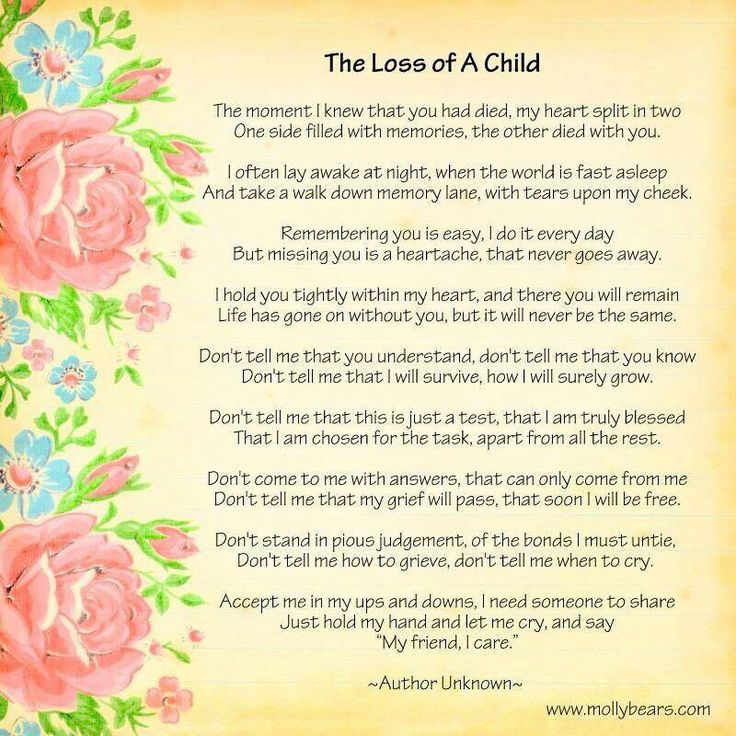 I worked with him when he was already eight years old, and I had to refer him to a child psychiatrist because he had a split personality. On the one hand, he perceived himself as a full-fledged personality, and on the other hand, he did not accept very much in himself. I do not blame the parents in any way, but I do not justify either. Unfortunately, such actions are quite common among parents who have lost a child, and we need to talk about this, ”says Anastasia. nine0003
I worked with him when he was already eight years old, and I had to refer him to a child psychiatrist because he had a split personality. On the one hand, he perceived himself as a full-fledged personality, and on the other hand, he did not accept very much in himself. I do not blame the parents in any way, but I do not justify either. Unfortunately, such actions are quite common among parents who have lost a child, and we need to talk about this, ”says Anastasia. nine0003
How to cope with the death of a child?
Anastasia Steblyanko:
It is considered normal to experience the grief of loss from six months to a year - during this period it is natural to experience pain, cry, fall into certain apathetic states. Previously, it is almost impossible to complete mourning and is not necessary in order for a person to adequately go through each stage. And therefore, one of the recommendations for loved ones who are close to a person who has lost a child is to evaluate how long the parent has been with this pain.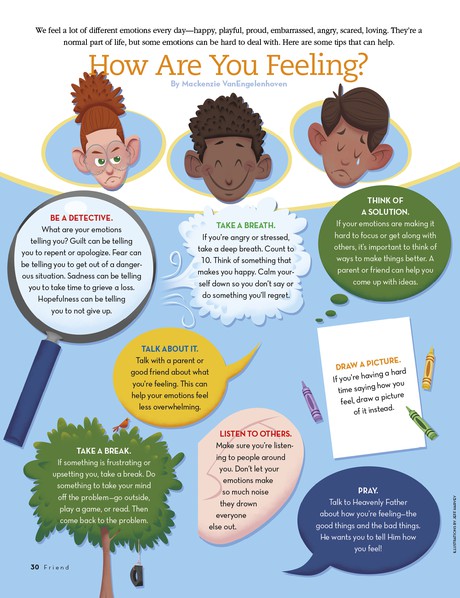 And if the term is more than a year, then, of course, the help of a psychologist is already needed. nine0003
And if the term is more than a year, then, of course, the help of a psychologist is already needed. nine0003
In psychology, there are five stages of experiencing the grief of loss. Depending on the stage at which a person is, recommendations can be formulated. It is important to know them both for the bereaved and for those around him. Knowing certain stages helps to understand that this pain will not last forever - it has a beginning and an end. If you do not interrupt the flow of this pain, trust it and behave accordingly, you can help yourself and your loved one who is experiencing a loss.
The first stage is shock. When a person learns terrible news for him, he begins to think: this is not happening to me, there was a mistake, this cannot be. And it happens that parents do not believe their own eyes and ears. This stage is considered the shortest and can last up to a month. nine0003
The second stage is aggression. A person begins to show aggression towards others, himself (this is less common), and even the deceased.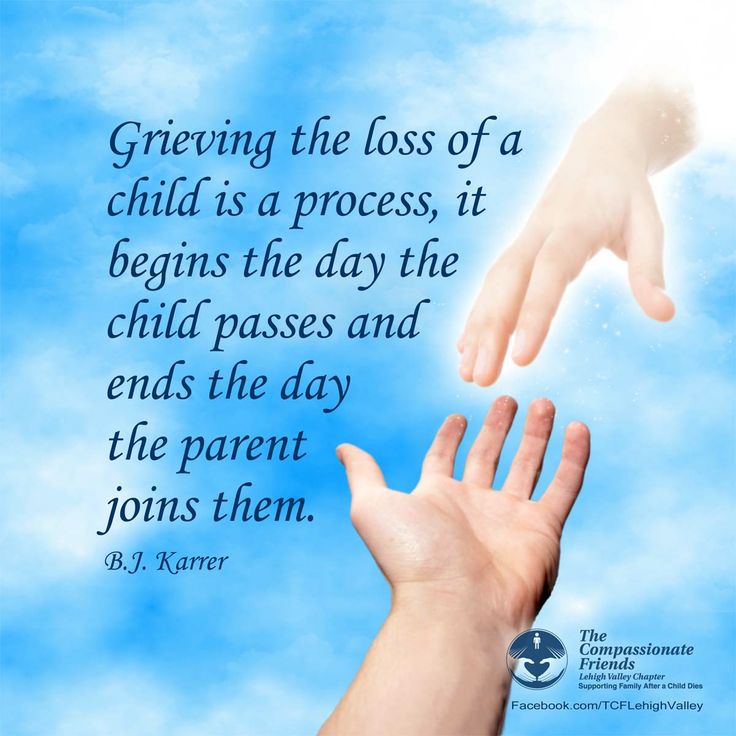 And most often such phrases sound: you left this life because you didn’t care about yourself, why did you leave me, it hurts me now because of you. In terms of timing, it’s more difficult to say exactly - usually the stage of aggression lasts from two weeks. But, as a rule, within two months it is completed.
And most often such phrases sound: you left this life because you didn’t care about yourself, why did you leave me, it hurts me now because of you. In terms of timing, it’s more difficult to say exactly - usually the stage of aggression lasts from two weeks. But, as a rule, within two months it is completed.
The third stage is bargaining. If we talk about the emotions and feelings that a person experiences, this is either guilt directed at herself (she didn’t keep track, she wasn’t attentive enough) and her “sister” is an insult to the departed (because of you I suffer, because of you my life has changed ). But these are, I would say, “light” versions, because most often resentment and guilt are very deep feelings, and they can be expressed in different ways. If a person has lost an adult child, then resentment and accusations can be more complex. It is in the stage of guilt and resentment that people most often get stuck, and people come to me for help while they are in this stage.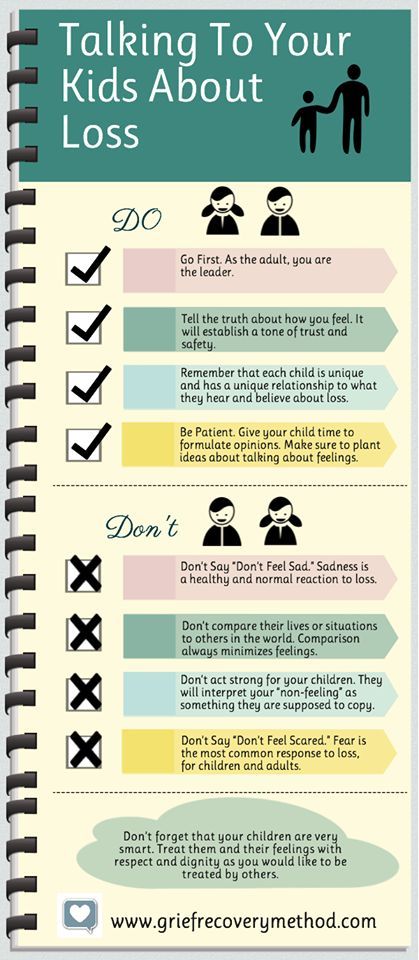 Normally, it can last up to four months. nine0003
Normally, it can last up to four months. nine0003
The fourth stage is depression. And here, depending on the experience, depression can be expressed in certain symptoms - apathy, unwillingness to do something, reduced mood, lack of strength and energy. On the other hand, it can turn into clinical depression when it is necessary to connect antidepressants and medications in order to support the human body. Since this is the penultimate stage, and seven to nine months have passed on the way to it, often the body and neurotransmitters are depleted - a failure at the physical level can occur. Most often, symptomatic depression does not turn into clinical depression, but it is in parents who have lost a child that I meet classic clinical depression when psychiatric help is needed. And when clients come to me with such symptoms, I refer them to a doctor to prescribe medication. And if a psychiatrist prescribes further psychotherapy, people come back to me, I diagnose and take them into therapy so that they can get out of a state of grief and loss. nine0003
nine0003
By the way, it is at the stage of symptomatic depression that it is recommended to start performing ritual actions. I’ll explain right away: by ritual actions, I don’t mean magic, because often, experiencing a loss, people begin to turn to psychics. Of course, I don’t support this, because psychics are not the kind of people who can adequately help a person survive grief. When I talk about ritual actions, I mean certain actions related to letting go. This may be the installation of a monument, the removal of commemorative films. And it is not for nothing that in the cultures of many peoples there are ritual feasts, meetings, and it is the year after death that is one of such important meetings. nine0003
The fifth stage is acceptance. The pain remains with the person, but it is no longer so acute when, in addition to negative experiences, bright memories appear and they do not bring painful sensations, but, on the contrary, remind of love. Normally, this stage can last from three weeks or longer.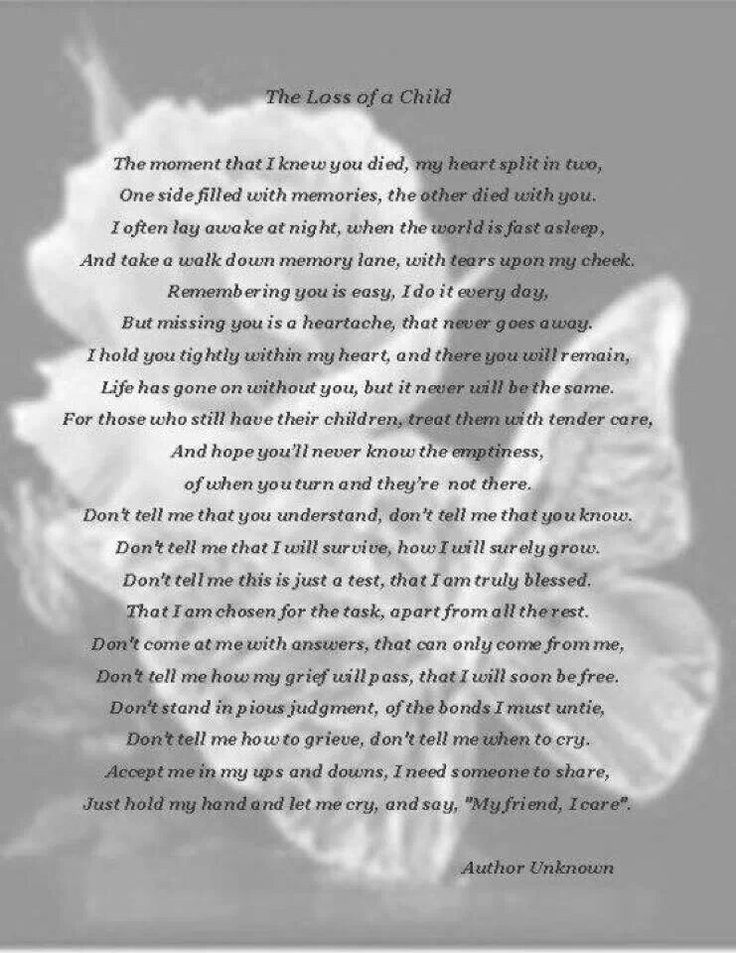 Since this is a post-depressive stage, there is an increase in energy, enthusiasm, goals appear that may be associated with the departed child. And most often, these actions help end the mourning. nine0003
Since this is a post-depressive stage, there is an increase in energy, enthusiasm, goals appear that may be associated with the departed child. And most often, these actions help end the mourning. nine0003
There is no hard distinction between these stages to determine exactly what stage a person is currently in. They flow from one to the other very smoothly. For example, in the stage of depression, which is considered the penultimate stage, a lot of aggression can often reappear, and if the depression is clinical, elements of disbelief, as in the first stage of shock. Therefore, these stages are distinguished on the basis of what feeling is now leading, and psychologists use them to suggest at what stage a person is now. nine0003
Where to turn for help
Unfortunately, there are no social programs and funds in Kazakhstan that provide assistance to people who have lost a child.
- In Almaty, we found a support group "Mom Angela". At +7 777 688 6809 you can contact the head of the Bereginya Association of Perinatal Psychologists and Psychotherapists Natalia Postoeva.
